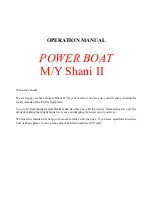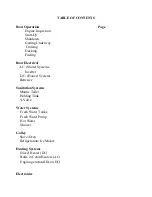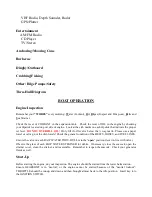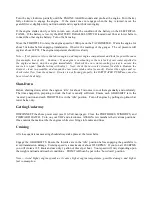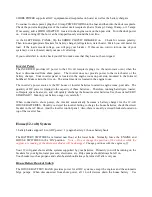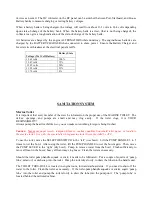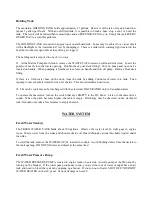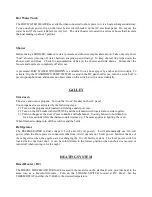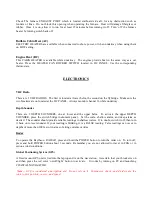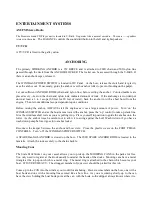
VHF Radio, Depth Sounder, Radar
GPS/Plotter
Entertainment
AM/FM Radio
CD Player
TV/Stereo
Anchoring/Mooring Cans
Barbecue
Dinghy/Outboard
Crabbing/Fishing
Other: Bilge Pumps/Safety
Thru-Hull Diagram
BOAT OPERATION
Engine Inspection
Remember your
“WOBBS”
every morning:
W
ater (Coolant),
O
il,
B
ilges (Inspect and Pump-out),
B
elts and
S
ea Strainer.
Check the level of COOLANT in the expansion tank. Check the level of OIL in the engine by checking
your dipstick located on port side of engine. Look at the etch marks on each dipstick that indicate the proper
oil level.
DO NOT OVERFILL OIL!
Only fill if oil level is below the ½ way mark. Please use a paper
towel or oil rag, not the dish towels! Check the general condition of the BELTS, HOSES, and FUEL LINES.
Ensure the valve on each RAW WATER THRU-HULL is in the
‘open’
position (lever in-line with valve).
Observe the glass of each RAW WATER STRAINER for debris. If necessary, close the seacock, open the
strainer cover, clean the strainer, and reassemble. Remember to reopen the seacock. Check your generator
fluids as well.
Start-Up
Before starting the engine, do your inspection. The engine should be started from the lower helm station.
Ensure GEARSHIFT is in ‘neutral’, or the engine cannot be started because of the “neutral lockout”.
THROTTLE should be run up and down and then brought almost back to the idle position. Insert key into
the IGNITION SWITCH.

